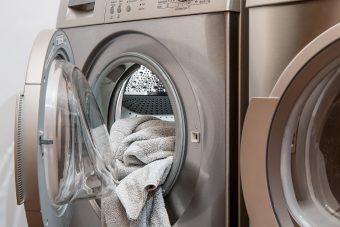
It seems that raising awareness of the need for a rational attitude towards energy and energy products is more important than the establishment of energy efficiency measures because where it does not exist, the introduction of mandatory measures is inevitable. The “Turn to Green” campaign, created in cooperation between the Ministry of Mining and Energy and the European Union, was aimed precisely at informing citizens to influence awareness of the importance of choosing more energy-efficient products when purchasing. We spoke with Mirko Đapić, PhD, one of the key experts on the project Eco-design and energy labeling of products, about the results of the implemented campaign and the awareness of our citizens about energy efficiency.
The main communication channels of the part of the campaign dedicated to citizens were the media. At the same time, training was held for sellers, distributors, small and medium-sized enterprises and employees of the Ministry of Mining and Energy. More than 70 media participated in the implementation of this campaign through advertising spots and guest appearances by project collaborators on television with a national frequency, as well as on the radio. Also, video materials were distributed through social networks, billboards were placed in 40 locations, and printed materials were distributed to citizens. There were stickers on city buses.
IN FOCUS:
- THE COMPANY ENERGETIK ENERGIJA D.O.O. CONQUERS THE BALKAN MARKET
- ROAD TO ENERGY EFFICIENCY THAT MUST BE TAKEN
- SUCCESS AND CHALLENGES OF SUSTAINABLE CONSTRUCTION IN SERBIA
Speaking about the achieved results, Mirko Đapić, PhD, says they are satisfied with what has been achieved. It is supported by the results of the public opinion poll conducted at the beginning and end of the campaign.

“We can state that there has been an increase in the number of Serbian citizens familiar with the concept of energy efficiency compared to the situation before the campaign was launched. For example, 81 per cent of respondents claim to be familiar with this term (77 per cent before the start of the campaign), 68 per cent of respondents are aware of the meaning of the energy class labels on the electrical devices they use (66 per cent before the campaign), while 72 per cent know that the device is more efficient if its estimated energy efficiency is rated green (68 per cent before the start of the campaign)”, says our interlocutor.
Nevertheless, the doubts present among citizens regarding energy efficiency are still great and are especially pronounced among the elderly population, citizens with a lower level of education, as well as those with lower personal and family incomes. When asked whether the reason for the insufficient response of citizens to the call for the replacement of products with higher energy efficiency is financial or a lack of awareness, Mirko Đapić, PhD, says 41 that the answer includes both reasons.
According to him, one of the key motives of citizens when buying products is still the savings they can achieve. That is why it is necessary, and the media is expected, to inform the citizens of the result of choosing energy-efficient products, which is reflected not only in the contribution to the preservation of the environment but also in financial savings.
However, it is necessary to work on enabling more favorable purchases for those groups of citizens who cannot make purchases due to insufficient income, through financial incentives, deferred payment, payment in installments, and exchanging old for new.
It is necessary to focus the activities on developing awareness of personal contribution to the increase of energy efficiency among citizens and among sellers of household appliances because they can also be one of the channels of influence, bearing in mind the significant reliance on their recommendations.

“For example, respondents who come from Vojvodina and Western Serbia and Šumadija, as well as from rural areas of Serbia, above average rely on recommendations, and the sellers themselves confirm this finding,” says Mirko Đapić.
Although sellers claim that all products are adequately marked with energy efficiency labels, it seems that customers still do not pay much attention to these labels. It is confirmed by the fact that more than 60 per cent of citizens do not know that there have been changes in the scaling of energy efficiency labels.
The results of a survey conducted as part of the project before the launch of the “Turn to Green” campaign show that when buying home appliances in Serbia, the brand of the appliance has a decisive influence, as confirmed by 33 per cent of the respondents. This is followed by the price of the device (30 per cent), low power consumption (13 per cent) and the possibility of purchasing the device in installments (6 per cent). Based on these results, we can conclude that only 13 per cent of Serbian citizens are guided by the energy efficiency of the appliances when purchasing them, while in the EU, it is about 79 per cent of citizens.
“That is one of the main reasons why the EU, through the application of legislation in the field of eco-design and energy labeling of products, reduced household electricity consumption by 20 per cent from 1990 to 2020, taking 1990 as the base year,” says Đapić.
Prepared by: Katarina Vuinac
Read the story in the new issue of the Energy portal Magazine ENERGETIC EFFICIENCY



